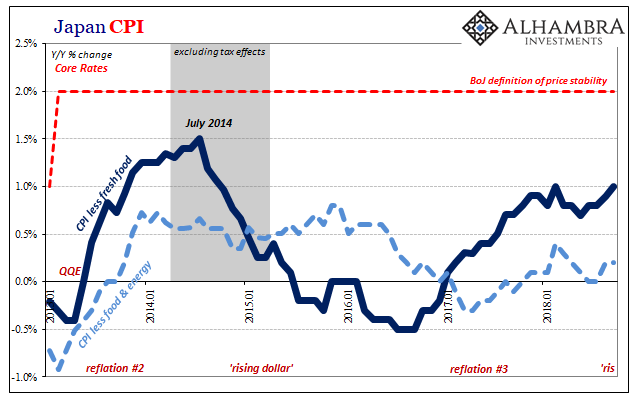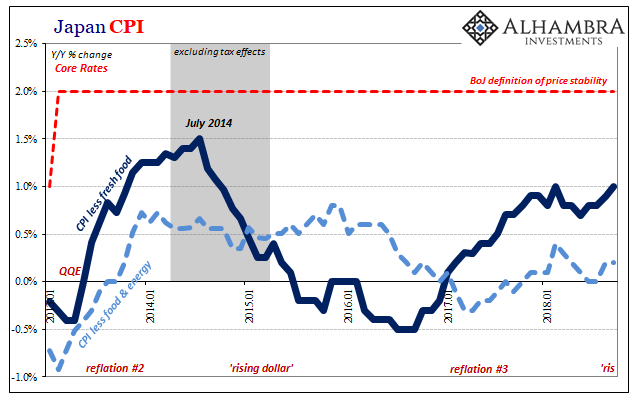The 21st-century central banker is a unicorn chaser. This has happened by default, a product of too little success despite ever-increasing interventions. In fact, the bigger these policy intrusions become the more likely it is the central bankers will attempt to turn something small into something big. It doesn’t matter that economies are noisy by nature.
The best example is found in Japan. Always Japan. The country’s central bank, BoJ, has been at it for almost thirty years. Five and a half years ago, officials would leave all that past behind with a “novel” approach in the form of QQE. It was an almost immediate failure, boosted in October 2014 just a year and a half into a program that was forecast to exceed its goals within two years.
Central bankers have tried to argue time; they now say that these non-standard monetary policies simply need enough time to work. The most potent programs ever devised, supposedly, are slow-acting time-release.
In 2017, as Economists worldwide predicted globally synchronized growth, Japan’s unemployment rate fell 0.3 points. It began the year at 3.0% and ended it at 2.7%. In January 2018, however, the rate would fall that much in just the single month. It was a startling development, a sudden 2.4% rate that would make policymakers delirious with optimism.
The stories about Japan’s sudden labor shortage abounded. Here’s one from early March:
Tokyo is rife with visible signs of a labor crisis. Job advertisements plastered on the windows of restaurants, retailers, and train stations – all desperate for new staff – are a staple of the urban landscape. In particular, workers from labor intensive fields and low-skilled job hunters are spoiled for choice.
The day after those words were published, Haruhiko Kuroda, BoJ’s top official, stunned the world when for the first time he openly talked about ending QQE. Success was within his grasp, he claimed.
Right now, the members of the policy board and I think that prices will move to reach 2 percent in around fiscal 2019. So it’s logical that we would be thinking about and debating exit at that time too.
The world’s media, technocratic idealists all, joined in the celebration declaring this was really it.

The party was, as you might guess, entirely premature.














Leave A Comment